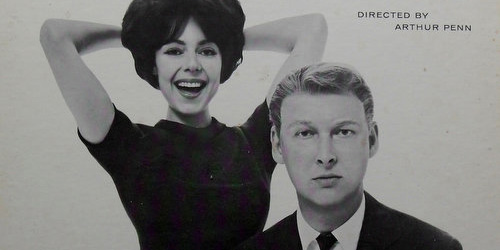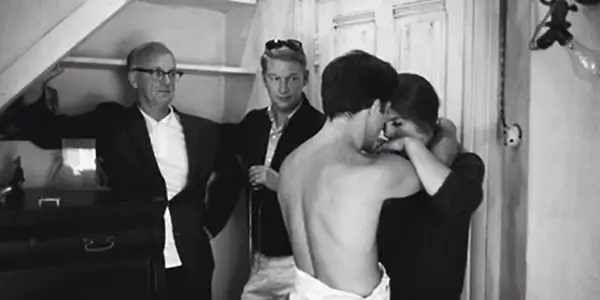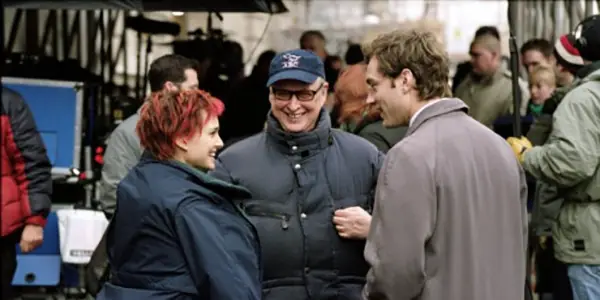The Beginner’s Guide: Mike Nichols, Director

Michelle Sabato is an actor and writer from Cleveland, Ohio.…
No one can deny that filmmaking is tough business; the glamour is fleeting. Very few people have been able to make the transition from being in front of the camera to behind it, or vice versa. But Mike Nichols is one of the rare exceptions who was able to make the change appear seamless. Nichols’ career started on the stage, and ended as one of the most acclaimed producers and directors in film history.
Troubling Beginnings
Mike Nichols was born Mikhail Igor Peschkowsky to a Jewish family in 1931 in Berlin, Germany. When Mikhail was four years old, he had an adverse reaction to a whooping cough vaccination and lost his hair. He was forced to wear wigs for the rest of his life due to this incident. As you can suspect, being Jewish in Germany in the 1930s was not the ideal place to raise a child. In 1939, Mikhail’s father, Pavel, who was a physician, fled to the United States. Mikhail and his younger brother, Robert, were sent to the U.S. shortly after. Mikhail’s mother, Brigitte, fled Germany through Italy in 1940, and was reunited with the family in New York City.
After the family was reunited, Mikhail’s father changed the family’s last name to Nichols. The name Nichols is the family patronym, so it didn’t deter from their roots. And this is how Mikhail Peschkowsky became Mike Nichols. Pavel was able to set up a practice in New York and allowed for the family to live comfortably. By 1944, Nichols was a U.S. citizen and lived a relatively normal life in New York City. After graduation, he made his way to Chicago to attend the University of Chicago as a pre-med. But he wouldn’t end up following in his father’s footsteps.
The Initial Spark
While attending university, Nichols joined the staff of a classical music radio station, taking the job of an announcer. He also started to audition and act in theatre productions around Chicago. This led him to meeting someone who would eventually change his life: Elaine May. They had met on numerous occasions and eventually became members in the Chicago Compass Players, an improv troupe. After performing together for a couple of years, they created the comedy duo “Nichols and May“, where they played to live audiences and also recorded three satirical comedy albums.

By 1960, Nichols and May got to Broadway, starring in “An Evening With Mike Nichols and Elaine May”, which was directed by Arthur Penn. The album recording of this show would go on to win the Grammy Award for Best Comedy Album. Shortly after this performance, Nichols and May went their separate ways. This separation would make way for Nichols’ paramount directing and producing career.
A Director Is Born
Because Nichols was accustomed to the stage, being an actor and comedian himself, his first directing jobs were in the theatre. But he didn’t start small; he would be directing some of the most well renowned plays of the 20th century. In 1963, Nichols directed Neil Simon’s Barefoot in the Park, and in 1965 directed Simon’s The Odd Couple, starring Walter Mathau. By 1966, Nichols garnered multiple Tony awards and was regarded as one of the most in-demand directors by Time magazine.
Without any film experience under his belt, Warner Brothers commissioned Nichols to direct Who’s Afraid of Virginia Wolf?, starring Elizabeth Taylor and Richard Burton. Nichols piggybacked on his theatre success and directed his first film to rave reviews. The film became the number one film of 1966 and was nominated for numerous Academy Awards; one for Nichols for Best Director and one for every credited cast member in all of the acting categories, which was a first for the Academy.

For a first time film director, Nichols knocked it out of the park. So how was he going to top this, you might ask? With The Graduate. His follow up film just happened to be one of the largest grossing films in film history. But the pre-production of the film would not be without some struggle. Financing was hard, as Nichols was still a relatively new kid on the block.
Once financing was locked, Nichols made two interesting choices: he picked an unknown screenwriter and lead actor. Nichols reached out to Buck Henry to be the screenwriter on the film, although Henry was predominately in improv comedy. The choice didn’t make sense at first, but Nichols was able to see a potential in Henry that only a fellow improv comedian could see. Nichols’ second odd choice was in wanting Dustin Hoffman to play the lead, opposite Anne Bancroft. Hoffman was an unknown, appearing in commercials and bit film roles. He also didn’t look like the typical leading man at that time, with Robert Redford and Paul Newman leading the charge.
Because of Nichols’ undeniable success in the theatre, he was able to fight and win for his choice in casting. The rest is cinema history. The Graduate gave Nichols the Academy Award for Best Director and would go on to be an American film classic.
Style and Legacy
The best directors are the ones who understand actors, and Nichols is proof of that sentiment. For each film he worked on, he would work intimately with the actors to get the best performances out of them. Because he was an actor himself, Nichols was able to speak with the actors in a way that was relatable and non-intimidating. He even stated “I love to take actors to a place where they open a vein. That’s the job. The key is that I make it safe for them to open the vein.” And if anyone was able to do that, it was him. Just take a look at some of the films that Nichols went on to direct:
Catch-22, Silkwood, Biloxi Blues, Working Girl, Postcards from the Edge, Regarding Henry, The Birdcage, Primary Colors, Closer and Charlie Wilson’s War.
That’s right, Nichols was able to direct and bring performances out of some of our most acclaimed actors, like Meryl Streep, Whoopi Goldberg, Robin Williams and Kathy Bates, to name a few.

Nichols was also able to capitalize on the rise of television, as he directed the TV movie Wit and the miniseries Angels in America, both for HBO. Angels in America is by far one of the most astounding pieces I have ever seen come to life. Shortly before his death, Nichols regarded Angels in America as one of the crowning achievements of his career. And that is a big statement coming from one of only twelve EGOT winners (Emmys: Wit and Angels in America. Grammy: An Evening with Nichols and May. Oscar: The Graduate. Tony: 9 wins, one of which was Barefoot in the Park).
Sadly, in 2014, Nichols passed away from a heart attack. The outpouring from the film, television and theatre communities was palpable. Many actors regarded Nichols as one of the best directors of our time, and attributed the rise or revamp of their careers to him.
Conclusion
There are certain directors that have tangible strengths, and it is evident that Nichols’ background as an actor would be his strength as a director. Coming from such bleak beginnings, Nichols forged a life as one of the most important directors in cinematic history. I can tell you for certain that, had I never seen Angels in America, I would not be the person that I am today. Nichols influenced the film landscape and has influenced me personally.
What is your favorite Mike Nichols film? Do you have a particular director who has changed the way you view film?
Does content like this matter to you?
Become a Member and support film journalism. Unlock access to all of Film Inquiry`s great articles. Join a community of like-minded readers who are passionate about cinema - get access to our private members Network, give back to independent filmmakers, and more.
Michelle Sabato is an actor and writer from Cleveland, Ohio. By the age of 2 Michelle had memorized all the words to The Wizard of Oz. So, yes, she can carry a conversation with just using movie quotes.













